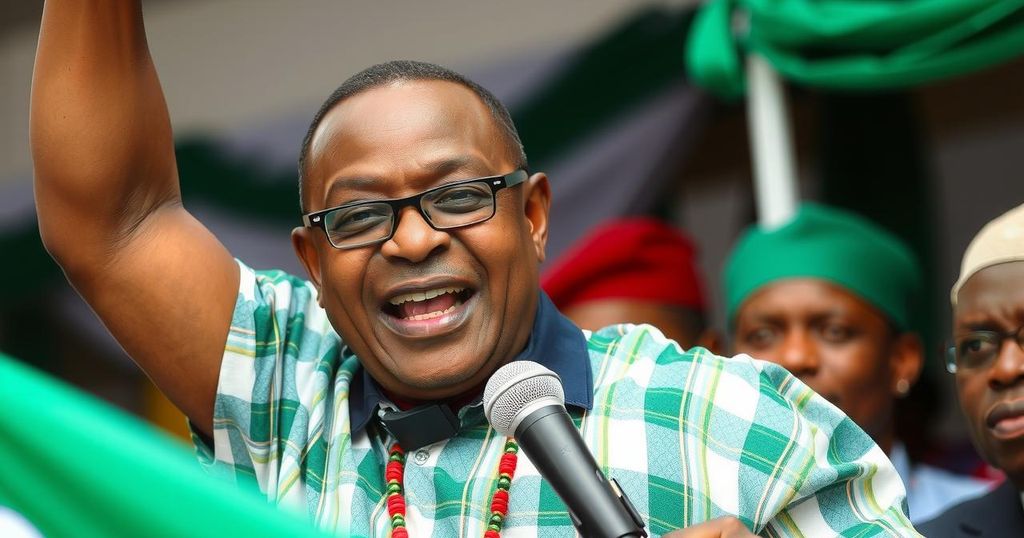Former President John Dramani Mahama won Ghana’s presidential election on December 7, as acknowledged by outgoing Vice President Mahamudu Bawumia. Mahama’s victory represents a response to the economic crisis and voter dissatisfaction with the ruling NPP. Concurrent parliamentary elections also show an NDC lead, while the Independent Electoral Commission awaits final results. The election occurred largely peacefully, a notable contrast to past electoral violence.
Accra – Former President John Dramani Mahama has emerged victorious in the presidential elections held in Ghana on December 7. Though the official final results are still pending, outgoing Vice President Mahamudu Bawumia from the New Patriotic Party (NPP) acknowledged Mahama’s triumph on Sunday, December 8. This marks Mahama’s return to office after an eight-year hiatus, as he previously served as President from July 2012 until January 2017, when he was succeeded by Nana Akufo-Addo, who was unable to seek re-election following his two terms in office.
In addition to Mahama’s victory, the National Democratic Congress (NDC) is reportedly leading in the concurrent parliamentary elections. The Independent Electoral Commission has urged patience among voters as they await the final election results. According to the bishops, the electoral process occurred largely in a peaceful atmosphere, a contrast to the turbulence witnessed in previous elections.
Mahama’s win is attributed partly to the severe economic crisis facing Ghana, which has been characterized by high inflation and rising youth unemployment, compelling many voters to shift their allegiance from the ruling party after eight years of governance. The new President will be tasked with addressing the pressing economic challenges, including a $3 billion loan from the International Monetary Fund that the previous government sought to stabilize the economy. Moreover, public dissatisfaction stemming from recent government scandals has influenced voter sentiment. Despite previous election-related violence in 2016 and 2020, this year’s election is noted for its relative calm, although tragic incidents were reported resulting in at least two fatalities.
The political landscape in Ghana has undergone significant changes over the last decade, predominantly framed by the leadership of Nana Akufo-Addo and the challenges presented by economic conditions. Following accusations of poor economic management under the NPP, coupled with rising inflation and unemployment, the electorate has shown a propensity for change in leadership. Former President Mahama, having previously faced defeat in the elections of 2016 and 2020, has returned amid calls for economic reform and governance that addresses the concerns raised during the previous administration’s term. The impending challenges, particularly regarding the IMF loan, signal a turbulent yet critical period for Mahama’s upcoming presidency. Overall, Ghana is viewed as one of Africa’s stable democracies; however, the electorate’s demands for accountability and effective governance must be met to sustain future stability.
The recent presidential election in Ghana marks a significant shift in political leadership with John Dramani Mahama reclaiming the presidency after eight years. His victory is largely viewed as a response to the economic hardships experienced under the previous administration. With the NDC leading in parliamentary elections and the absence of notable electoral violence, this transition period will be critical as Mahama faces substantial challenges ahead, particularly regarding fiscal stabilization and public trust. The peaceful conduct of the elections bodes well for Ghana’s democratic processes, yet the president-elect must act swiftly to address the concerns of the electorate.
Original Source: www.fides.org






